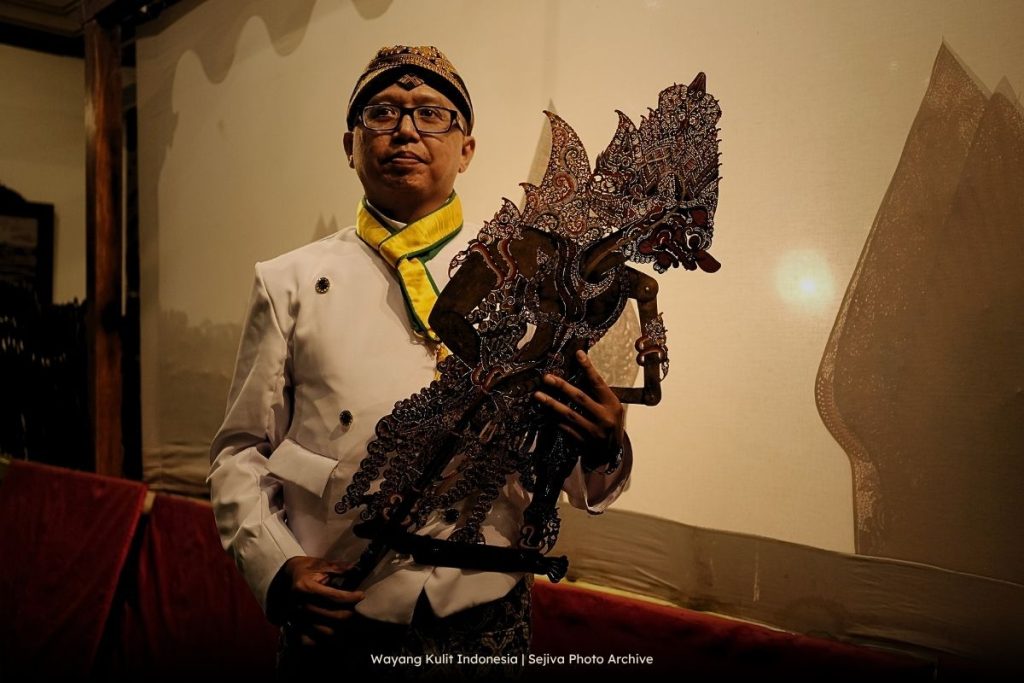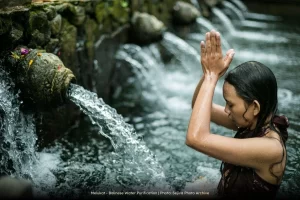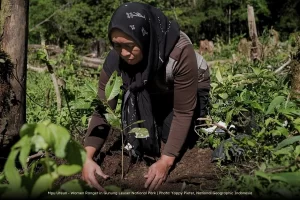introduction to indonesian culture
the richness of indonesia’s cultural heritage
Indonesia, with more than 1,300 ethnic groups and hundreds of local communities, is home to an extraordinary wealth of Indonesian culture. Each region —be it from Sabang to Merauke (East Java, Nusa Tenggara, Aceh) or other provinces — has its own unique arts, traditions, and values, creating a vibrant and diverse cultural landscape. This heritage is clearly reflected in traditional works of arts, local rituals, and the everyday lifestyle of the Indonesian people, which are deeply rooted in local wisdom and spiritual beliefs that often blend influences from Hinduism, Buddhism, and religion in Indonesia today, Indonesian culture reflects a long history, spiritual depth, and the rich diversity of its people.
Art and culture in Indonesia are not separate from daily life. They are born from ancestral heritage, a deep respect for nature, and communities that live in harmony. This is the true strength of Indonesian culture—rich, meaningful, and deeply connected to the soul of the nation.
Also Read: dampak travel positive bagi pelestarian budaya
traditional arts that define indonesia
batik, wayang, and traditional dance
One of the most iconic works of art in Indonesia is batik. This fabric dyeing technique using wax produces patterns rich in meaning and symbolism. Each batik motif tells its own story, reflecting philosophy, social status, or the origin of a specific region. UNESCO has recognized batik as an Intangible Cultural Heritage of Humanity, emphasizing its significance in Indonesia’s cultural identity.
Among the most recognized performing arts in Indonesian culture is wayang kulit, a shadow puppet performance using intricately carved leather puppets, is a profound form of traditional theater. These performances narrate legendary tales, accompanied by traditional gamelan music. This art form is not just performance—it is spiritual, philosophical, and educational. Passed down orally through generations, wayang reflects the deep moral values and cosmology of the Javanese people.

Another iconic aspect of Indonesian culture is its traditional dance, such as Tari Legong from Bali, showcase the beauty of synchronized and expressive movements. These dances are often associated with cultural ceremonies or religious rituals, reflecting the harmony between humans and the universe—one of the most spiritual aspects of Indonesian culture.
experiencing authentic indonesian traditions
sacred ceremonies and local wisdom
Throughout the archipelago, Indonesian people uphold traditions that are as much spiritual as they are social. Many ethnic groups across Indonesia maintain traditions that reflect their worldview. Values such as gotong royong (mutual cooperation) and musyawarah (deliberation and consensus) form the foundation of everyday life in Indonesian culture. This local wisdom is reflected in many aspects of life, from village development to conflict resolution, highlighting the importance of social harmony and togetherness.
In the face of modernization and growing individualism, these cultural values play a crucial role not only in preserving Indonesia’s rich heritage but also in shaping future generations, especially among the youth. Amid global tension and cultural dilution, they teach empathy, patience, cooperation, and respect for tradition—principles deeply embedded in Indonesian culture that offer a powerful model for coexistence and spiritual richness.
immersive travel for mindfulness and spirituality
A true cultural experience is not just about taking photos at popular destinations, but about being fully present within the local community and feeling the rhythm of their daily lives. This is the essence of immersive cultural travel allows you to be present in the moment, observe the rhythms of local life, and experience culture as it is lived by the people.
Cultural retreat programs like those offered by Sejiva.id integrate traditional arts with mindfulness practices and personal growth. This is where Sejiva invites you—not just to travel, but to transform through cultural experiences. Through its cultural retreat programs, Sejiva combines traditional performing arts, local rituals, and reflective practices rooted in mindfulness. It invites travelers not only to witness Indonesian culture but to live them—to find meaning in simplicity, silence, and soul-nourishing experiences. Every activity is carefully curated to touch the soul, purify intention, and strengthen the connection between self, others, and nature.
Also Read: apa itu travel positive?
how to support and sustain local crafts
Supporting local arts and crafts is a vital step in preserving Indonesian culture. Purchasing handmade products from local artisans—such as hand-drawn batik, bamboo weaving, or other traditional crafts—helps sustain the community’s economy and protects age-old techniques passed down through generations.
By purchasing directly from artisans, travelers contribute to the sustainability of local economies and help protect traditional techniques that are in danger of disappearing. Many of these crafts are learned within families or small communities, passed from parent to child over generations.
Sejiva is deeply committed to preserving and promoting Indonesia’s rich artistic heritage by actively supporting local artisans and their crafts. Through thoughtfully designed cultural retreats and mindful travel experiences, Sejiva integrates traditional craftsmanship into its programs, ensuring that these skills are not only preserved but also appreciated by a global audience.
1. direct collaboration with artisans
Sejiva partners directly with local craftsmen to showcase their work in an authentic and respectful manner. By working closely with these artisans, Sejiva ensures that traditional techniques are upheld while also providing fair economic opportunities for the communities.
2. hands-on workshops & cultural immersion
Travelers participating in Sejiva’s retreats have the opportunity to engage in hands-on workshops, learning from master artisans themselves. Whether it’s crafting batik, weaving bamboo, or carving wayang puppets, these immersive experiences allow visitors to appreciate the skill and patience behind each piece while contributing to the livelihood of local craftsmen.
3. ethical souvenirs & conscious consumption
Sejiva encourages mindful purchasing by offering ethically sourced, handmade souvenirs as part of its retreat packages. Instead of mass-produced items, travelers can take home one-of-a-kind pieces—such as hand-drawn batik scarves, handwoven baskets, or traditional pottery—directly supporting the artisans who made them.
4. preserving endangered craft traditions
Many traditional crafts in Indonesia are at risk of fading away due to modernization and lack of interest from younger generations. Sejiva helps combat this by documenting and promoting these crafts through storytelling, cultural exchanges, and partnerships with heritage organizations. By raising awareness, Sejiva ensures that these art forms remain alive for future generations.
a meaningful way to travel
Sejiva’s approach goes beyond tourism—it’s about fostering a deeper connection between travelers and the cultural roots of Indonesia. By supporting local crafts, Sejiva ensures that every journey leaves a positive impact, preserving Indonesia’s artistic legacy while enriching the lives of those who create it.
conclusion: the soul of a nation through its culture
Culture isn’t just something we admire from a distance—it’s something we feel, live, and grow with. In Indonesia, every dance, craft, and ritual tells us more than just a story; it invites us to slow down, to listen, and to reconnect—with ourselves, with others, and with the land we walk on.
Indonesian culture is not merely a relic of the past—it’s a living, breathing expression of identity, resilience, and spiritual depth. It shapes the way people think, move, celebrate, and find meaning in the everyday. Through its diversity, it teaches us to embrace differences and discover harmony in the most unexpected places.
With Sejiva, it’s not just about traveling—it’s about discovering life lessons along the way, through the lens of Indonesian culture. Indonesia offers something more than a vacation: it offers a soulful experience rooted in tradition, reflection, and connection. Because in the end, culture isn’t only about where we come from—it’s also about who we are becoming.
Also Read: Travel positive untuk masyarakat lokal










